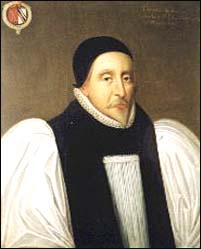
While Western Christians have little knowledge of the abbot/farmer, he is the patron saint of Moscow and is much revered in the Russian Orthodox Church. Like many of the "old-time" saints, he has a feast day on our calendar inherited from before our church's 16th Century split from the Church of Rome.
Sergius' power over Christian imagination is due not to his ferocity, self-humiliation, or academic degrees; he was known for his personality and humility, even to the extent of refusing to be named Metropolitan [that is, archbishop] of Moscow as he would have to wear an icon of the Blessed Virgin Mary suspended by, and here's the point of controversy for Sergius, gold chains.
As he noted at the time:
"From my youth up, I have never possessed or worn gold, and how now can I adorn myself in my old age?"
Much more of him may be found at the link that marks the quotation.
O God, whose blessed Son became poor that we through his poverty might be rich: Deliver us from an inordinate love of this world, that we, inspired by the devotion of your servant Sergius of Moscow, may serve you with singleness of heart, and attain to the riches of the age to come; through Jesus Christ our Lord, who lives and reigns with you and the Holy Spirit, one God, for ever and ever. Amen.
September 26: Lancelot Andrewes [1555-1626]

Once upon a time, bishops were true scholars with degrees in subject areas of which people outside of the church had actually heard. Andrewes was one such bishop/scholar, and the one who has had more influence over our understanding of the Bible than anyone else in the Western Church. Think I exaggerate? Andrewes was a polyglot who was fluent in 21 languages. His ability in English was so sublime that, had it not been for his particular, and rather staggering achievement, he would have been remembered as one of the church's great poets. This is high praise, as he was a contemporary of Christopher Marlow, Ben Jonson, and, oh, yes, William Shakespeare.
With his linguistic talent, artful ability to write clearly, and political savvy, Andrewes was the ideal man on whom to call to lead a large collection of scholars charged with a singular responsibly. Namely, translate the entire Holy Bible into a lucid and linguistically accurate English. His patron for this was King James I of England [and, as I learned in school in gloomy Edinburgh, James VI of Scotland].
The finished product is the King James Version of the Holy Bible, or simply the KJV.
More of Bishop Andrewes may be found here. More of the KJV and its considerable influence may be found anywhere Bibles are sold, discussed, or, in particular, read aloud.
Lord and Father, our King and God, by your grace the Church was enriched by the great learning and eloquent preaching of you servant Lancelot Andrewes, but even more by his example of biblical and liturgical prayer: Conform our lives, like his, to the image of Christ, that our hearts may love you, our minds serve you, and our lips proclaim the greatness of your mercy; through Jesus Christ our Lord, who lives and reigns with you and the Holy Spirit, one God, now and for ever. Amen.